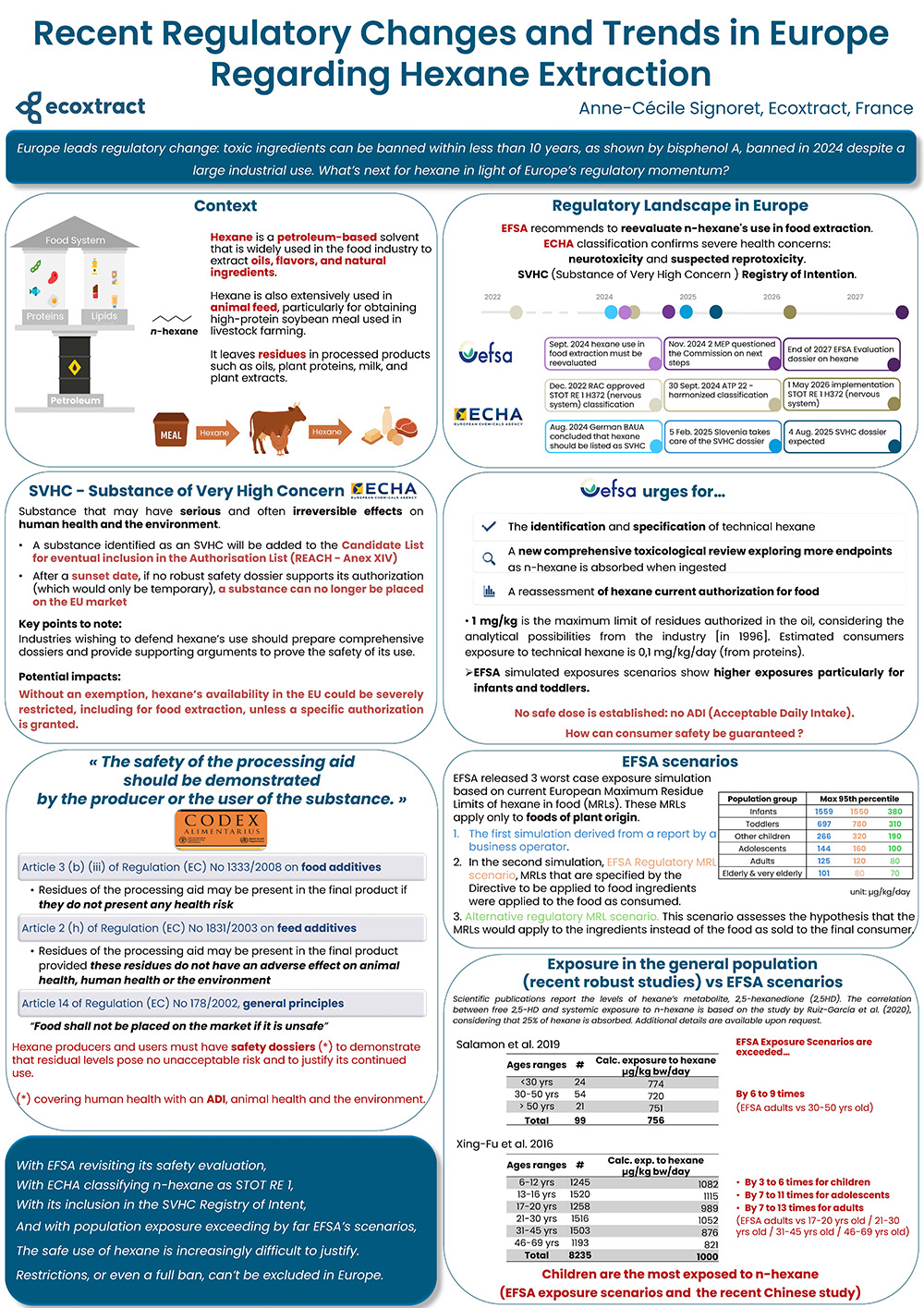Hexane is widely used in the world for food extraction. Each year, about 1.2 million tons of hexane are consumed to produce edible oils, natural extracts, plant proteins and feed materials. Without hexane extraction, the world would lose the well defatted, long shelflife feed meals which are the main protein source for conventionally raised cattle. However, hexane extraction, particularly in Europe, is being challenged more frequently. In August 2024, the German BAUA* published the conclusion of the RMOA (Regulatory Management Option Analysis) carried out for the ECHA (European Chemical Agency) that recommended Hexane to be placed in the “Substance of Very High Concern” list.
On September 13,2024, EFSA (European Food Safety Authority) released a report which concluded that hexane approval for food should be reassessed. On September 30, 2024, n-hexane was officially reclassified as a proven neurotoxic for humans. In February 2025, n-hexane entered the intention list of Substances of Very High Concern. These recent evolutions are consistent with the Toxic Free Environment objectives of the European Union. The EU want to push for Safe and Sustainable by Design alternative to the existing toxic chemicals. That context makes hexane regulatory situation fragile, particularly as feed processing aid. The EU regulation 1831/2003 allows processing aids residue in feed only “provided that these residues do not have an adverse effect on human health, animal health and the environment”.
But with no safe dose, Reference Dose or Tolerable Daily Intake for hexane, the proof of safety is difficult to bring, putting liability on the hexane producers and food manufacturers. What could be the consequences of these potential regulatory changes for the use of hexane in Europe and in the world?
*(Federal Institute for Occupational Safety and Health)
